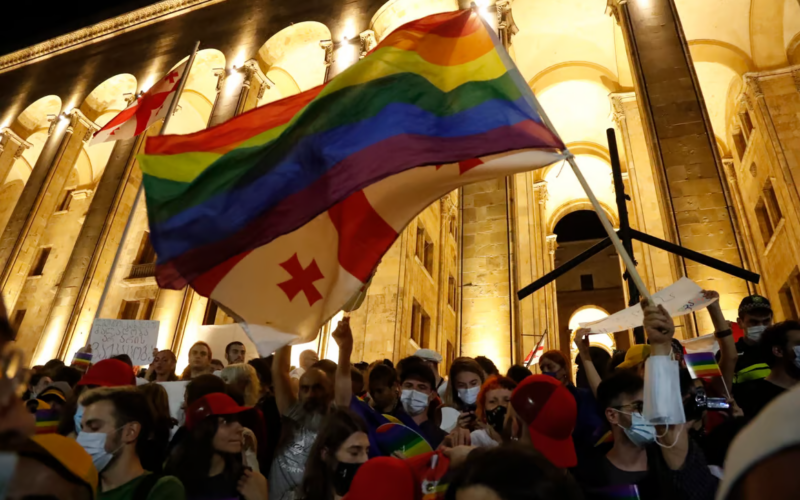Georgia’s government recently pushed through a controversial surveillance law against significant public opposition. Now, it has proposed a new decree targeting the LGBTQ community, sparking concerns over the country’s EU membership prospects. The government’s latest move follows the passage of the contentious “foreign agent law,” which faced weeks of mass protests. The ruling party, Georgian Dream, is now introducing legislation aimed at banning “LGBT propaganda.”
On Tuesday, Georgian Parliament Speaker Shalva Papuashvili announced that the party would bring a law to parliament to “protect minors and family values.” Papuashvili stated that the proposed legislation would restrict the “propaganda of same-sex relationships and incest in educational institutions and television broadcasts.” Just a day earlier, despite ongoing protests and international criticism, Papuashvili had enforced the controversial “foreign influence” law. Critics have likened this law to Russia’s 2012 “foreign agents” law.
The new proposed law also mirrors Russian policy. In 2013, Moscow enacted legislation against “homosexual propaganda,” banning content related to “non-traditional” relationships to protect children. This law was expanded in 2022 to prohibit any public representation of LGBTQ individuals. The term LGBTQ refers to lesbian, gay, bisexual, transgender, and queer individuals.
Since taking power in 2012, the Georgian Dream party initially pursued a left-wing, pro-Western agenda. However, over the past two years, the party has shifted towards anti-Western and anti-leftist rhetoric and policies.
Georgia has been an official EU candidate since December, with EU membership enshrined in the country’s constitution and supported by over 80% of the population, according to polls. The current government is accused of steering the former Soviet republic closer to Moscow.








